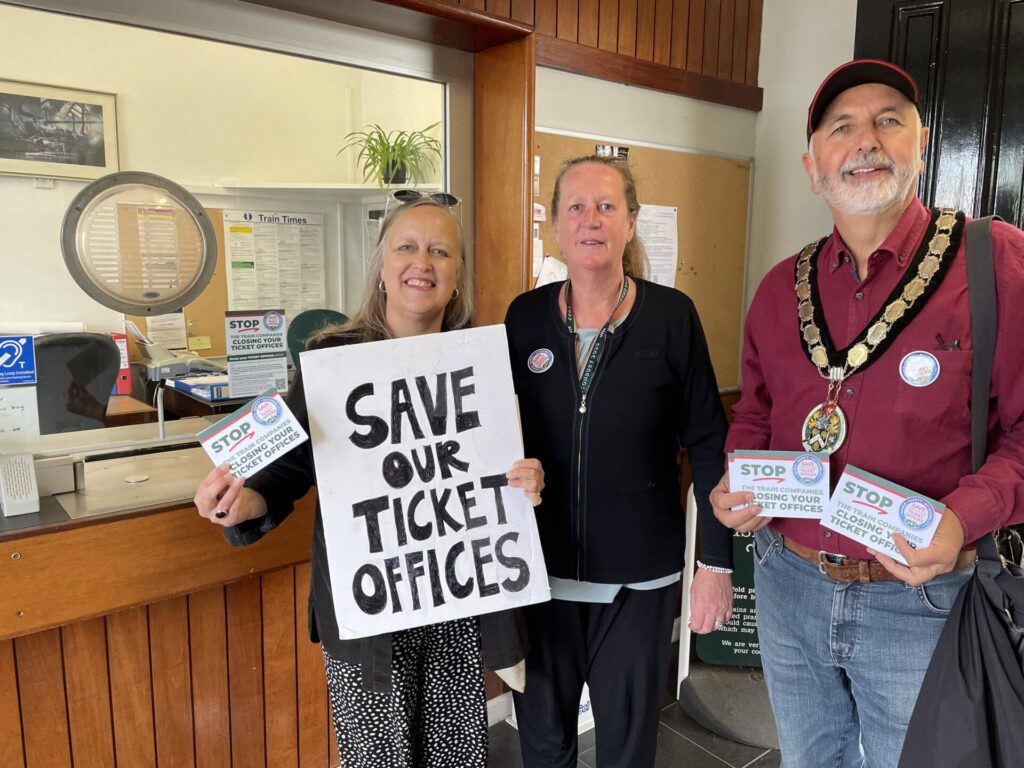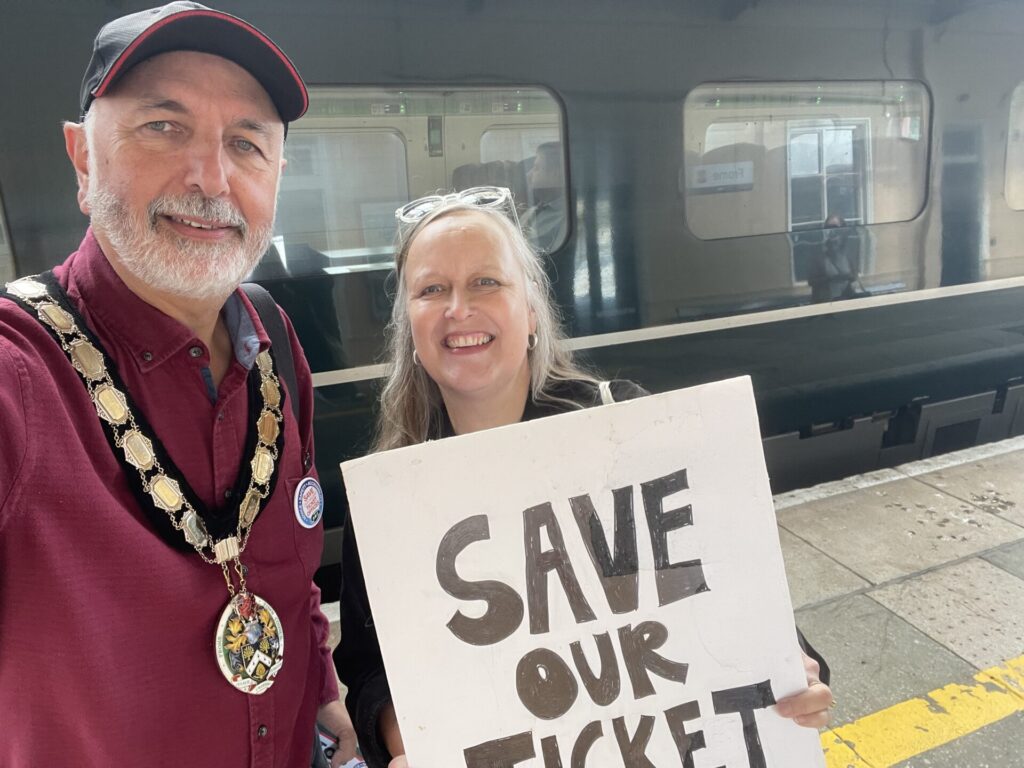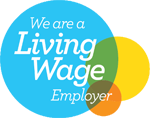Response to Transport Focus Consultation on Ticket Office Closures – By Paul Wynne, Town Clerk
I am responding on behalf of Frome Town Council to this consultation.
Frome Town Council is market town in Somerset with a population of circa 28,000. It is a popular and growing town with a national reputation for being a great place to live. People want to move to Frome in great numbers and people want to continue to live in Frome. This “demand for the town” is illustrated by the fact that the town remains vibrant in the face of the challenges all towns and communities faced during and after the covid period and more recently during the recession. As a result, people want to travel to and from Frome. Residents want or need to work in neighbouring towns and cities and visitors want to sample to delights of our town.
In addition, like all places in the world, Frome faces a climate emergency and we are working to reduce carbon emissions. Key to this is reducing reliance on the car.
Train travel has a crucial role to play in supporting our town and mitigating the impact of carbon emissions. Closing the ticket office would fly in the face of all that Frome needs and we urge GWR not to close it. It would be a retrograde and will not support this town to remain vibrant and to provide sustainable transport options in the face of the climate emergency.
Closing the ticket office will probably mean closing the waiting room and access to toilets. We simply do not accept that a busy and growing town and a community with increasing demand for train travel should be discouraged to travel in this way.
We consider it time for GWR to develop its role as a key partner in Frome’s environmentally sustainable development and work with us to provide a better public transport service for our community and visitors. We are keen therefore to meet with you and explore how to continue to explore how we can achieve this.
If, despite our offer of working together to improve the public transport offer, you insist on closure of the ticket office we have the following observations.
Alternative Payment Methods and their limitations
We urge you to ensure that the current ticket machine continues to be provided and that it is maintained in good working order via regular servicing. With no ticket office in place the chances of antisocial behaviour on the platform will increase and so you will need to factor this in to your servicing schedule. Paying online and paying on the train will need to continue and be made as easy as possible. You will need to ensure that staff on board provide this as a welcomed option.
To support this, simplification of fares should precede any closure of ticket offices. The national rail fare structure remains very complex and must be simplified before ticket offices are closed. For example, trying to pick your way through the myriad of options, including split ticketing, to try to arrive at the cheapest fare, is a complex and very frustrating task and passengers, especially those that are more technologically vulnerable and/or have no access to online services, already find extremely difficult. For many, a well trained and helpful ticket clerk ideally at the ticket office and failing that on board is an essential requirement.
In particular, we have the following observations:
- Experience shows that many of those who do not pay online are older or vulnerable. Many people, even if in possession of a smartphone, are not accustomed to the use of app based or other online purchasing, with which they have certainly not grown up. On 2020 ONS figures (the most recent available), only 13% of those over 65 used the internet to arrange accommodation or transport. The level of use will, given the history of technology, be on a steeply increasing curve in line with increasing age. Some will not be able to acquire the equipment or have the capability or skills to use online systems. This older generation forms a larger percentage of the population in Somerset (24.4%) and Dorset (29%) than the country at large (18.6%) (source 2020 census), so the closure proposals and consequent barriers to rail use will affect Somerset and Dorset disproportionately.
It should not ever be a condition of their right to use public transport that they learn.
- Other potential passengers will have similar problems of online and machine use for ticket purchases, by reason of various disabilities, physical or mental and indeed by reason of simple lack of ready access to the internet.
They ought not to have obstacles placed on their right to use public transport.
- Some potential passengers will not have access to a bank account and will thus be unable to undertake online transactions, even if in possession of the requisite technology.
They ought not to have obstacles placed on their right to use public transport.
Consequences of Changes
It is stated that payment on the train will always be the default if other forms of payment are not available. We understand from the South Wessex Community Rail Partnership that it is doubtful whether that accords with the precise terms of the Railways (Penalty Fares) Regulations 2018 and this needs to be clarified and enforced.
Of particular concern is that extensive existing experience on the Bristol to Weymouth line where there are many unmanned stations, shows that on-board purchasing, particularly in crowded coaches, can be difficult and when payment has to be made at the end of the journey at Bristol, for example, very stressful. You need to ensure that on-board purchasing is always available and to do this you need to ensure you have sufficient staff on board.
In the recent past it has become evident that revenue inspectors, in deciding whether to levy penalty fares, choose to place all the responsibility for difficulty in payment onto the passenger. This approach needs to stop.
The Regulations were written when purchase of tickets by all means was easy, so the assumption is that a passenger without a ticket must be intending to travel without making payment. This will, following closure of ticket offices, be a dangerous assumption for the reasons set out above.
In summary, Frome Town Council urge you not to close the ticket office at Frome station. Indeed, we urge you to invest more in improving your service to passengers. If you insist in doing so, this closure must be delayed until the measures described above to support our most vulnerable members of the community are in place.
As we say above, we are very keen to meet with you to discuss how the current service can be improved.



